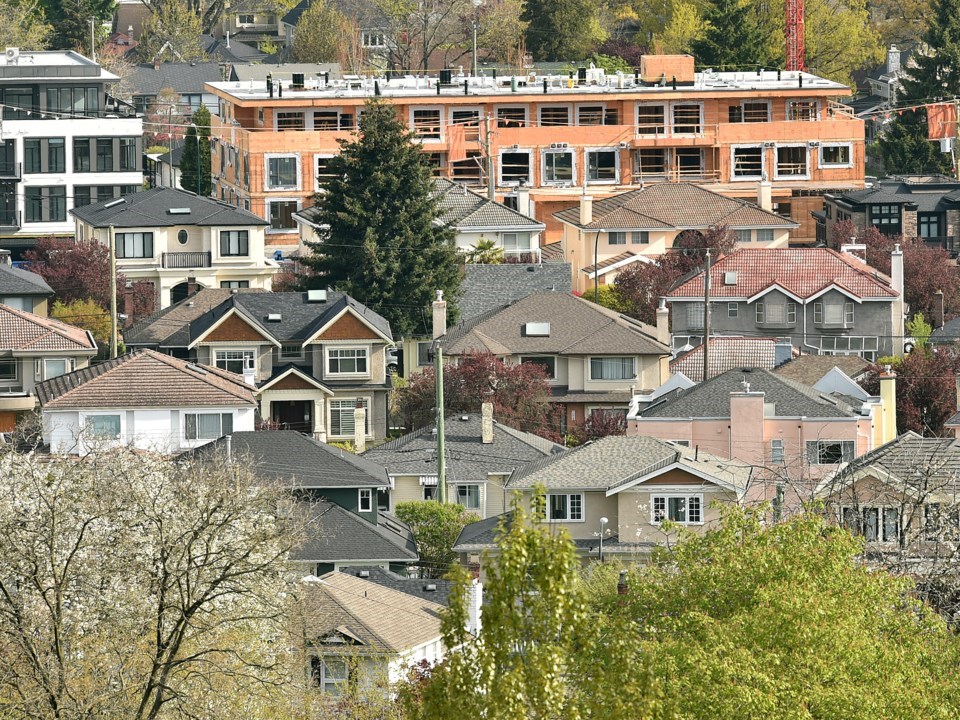If you’re looking for some good news on housing in Vancouver, there’s a report for that.
If you’re looking for some bad news, there’s a report for that, too.
Those reports — and another one related to “refreshing” the city’s housing strategy — went before city council last week.
I’ve gone through some of the 150-plus pages and decided the best way to give you a snapshot of the housing situation in 2022 is via some bullet points and quotes from the reports.
First, some background…
Back in 2017, the council of the day approved the Vancouver housing strategy with a goal of adding 72,000 new homes across the city over 10 years.
Fifty per cent of those homes are supposed to be secured rental and non-market housing for households who earn $80,000 or less per year, including 5,200 homes for low-income earners at $15,000 per year or less.
Forty per cent of the homes are supposed to be two and three-bedrooms, also referred to as family housing.
“Overall, factoring in secondary rental such as rented condominiums, two-thirds of homes are expected to be available for renter households,” said one of the staff reports.
That’s a lot of numbers and promises.
So is the strategy working?
The good news:
• More than 8,800 total new homes were approved in 2021 (not counting new single-family homes or duplexes), the highest since the housing strategy was approved in 2017.
• Of that total, 1,344 new social and supportive housing homes were approved, the second-highest approvals since 2010.
• More than 2,900 new purpose-built market rental units were approved, including 176 below-market rental units, the highest approvals in several decades.
• New townhouses approved totalled 439, significantly higher than the 10-year average.
• For the second consecutive year, more than half (52 per cent) of new housing approvals in 2021 were for secured rental or social housing (not including new single-family homes or duplexes).
• Of the homes completed last year, 689 were for secured rental and 1,186 for social housing, the highest number of completions in recent decades.
• A total of 461 new hotel and single-room-occupancy rooms were acquired in 2021.
The bad news:
• Only 33 per cent of homes approved since 2017 have been affordable to household incomes of $80,000 or less.
• Approximately 77,000 households in Vancouver are experiencing "housing need" due to unaffordable, unsuitable, or inadequate housing, as reported in 2016 Census data.
• Approximately 2,000 people are homeless and 7,000 residents live in 157 single-room-occupancy hotels, which Mayor Kennedy Stewart, the provincial government and federal government all want to get rid of and replace with more modern, safe and secure housing.
• People who are Indigenous and Black continue to be overrepresented among those experiencing homelessness, as are members of the 2S/LGBTQIA+ community.
• BC Housing’s social housing registry in March 2021 showed there were 4,730 people awaiting social housing within the city.
• The benchmark price for a detached home in East Vancouver increased by more than 100 per cent since 2010.
• Rents in Vancouver increased by more than 45 per cent between 2011 and 2021, and more than 50 per cent across the region.
• Vacancy rates in Vancouver and the region have remained near one per cent, with the exception of 2020 during the COVID-19 pandemic.
The interesting news:
• Vancouver is a major destination for migration from within and outside Canada, with almost 60,000 households moving to the city between Census 2011 and 2016.
• The vast majority of recent migrants are renters, who tend to be younger and earn lower incomes than existing residents.
• In the same 2011 to 2016 period, almost 20,000 households left Vancouver to live elsewhere in Metro Vancouver; another 20,000 moved outside the region.
• Between 2011 and 2016, nearly 77,000 households residing in Vancouver moved at least once to another home within Vancouver.
• Vancouver’s population last year was 662,248, up 14.6 per cent since 2006.
• More than 80 per cent of Vancouver’s purpose-built rental housing was built prior to 1980.
• According to recent Statistics Canada data, 19.3 per cent of individual property owners who reside in Vancouver owned more than one property.
• Of the number of people moving to Vancouver, 75 per cent are renters.
@Howellings




